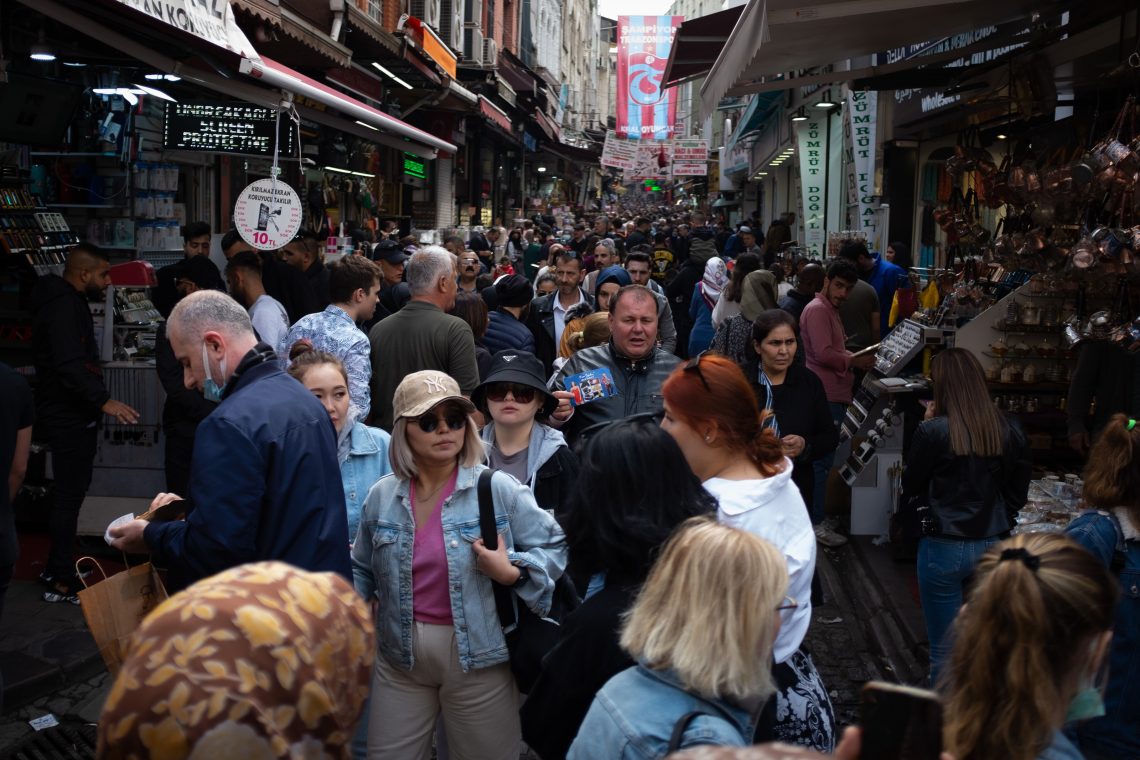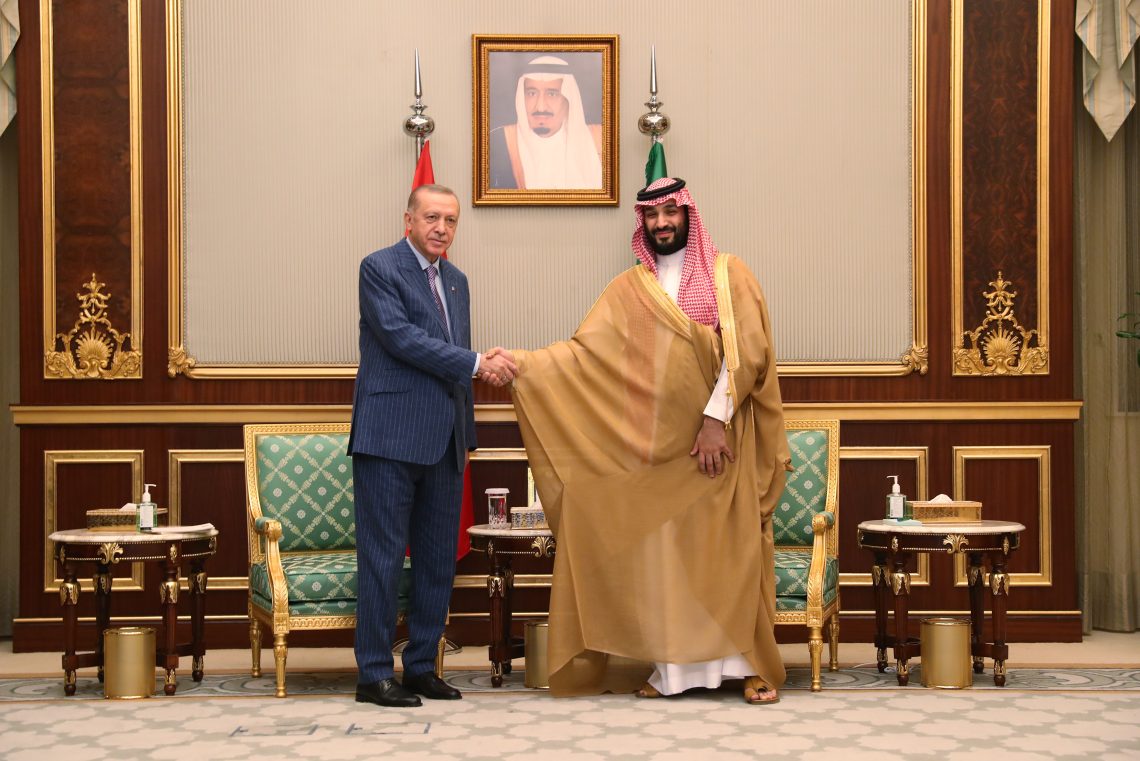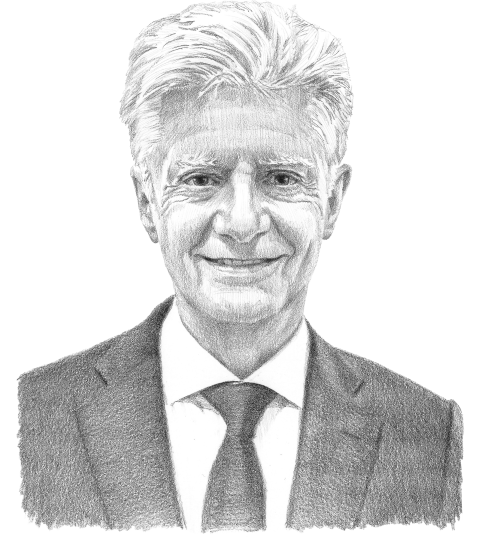Turkey seeks to repair its foreign relations
Turkey’s economic problems and geopolitical headaches have prompted President Recep Tayyip Erdogan to improve strained relations with neighbors and important partners.

In a nutshell
- Turkey plays a key security role in the region and as a NATO ally
- President Erdogan has sought to repair rifts despite many grievances
- Economic woes will likely lead Ankara to seek more accommodations
In the aftermath of World War I, during the first years of the Turkish republic founded by Mustafa Kemal Ataturk in 1923, millions of Turkish Muslims from all directions moved to the new, shrunken homeland for shelter and a peaceful place to live after 12 years of wars, expulsions and population exchanges. To this day everyone in Turkey is familiar with Ataturk’s saying, “Peace at home, peace in the world,” a belief that peaceful and good relations with neighbors – and indeed the world – are a necessary complement to internal stability.
Turkey’s neutral stance during World War II kept it out of trouble. When five years later Ankara decided to side with the West, participating in the Korean War and becoming a member of NATO in 1952, together with Greece, it was certainly a quest for safety that motivated the switch away from traditional neutrality.
Since then, Turkey and its neighbors have had their ups and downs, while relations with Greeks have remained the most sensitive issue to this day. The early years of the millennium ushered in a particularly harmonious period, of which former Prime Minister Ahmet Davutoglu was the spiritual architect, and the operative slogan became “Zero problems with the neighbors.”
Also on Turkey by Klaus Wölfer:
The Black Sea and Turkey in focus
From 2008 onwards, the road started to get bumpy, in some instances through no fault of Turkey. The Greek-controlled part of Cyprus rejected the United Nations peace and reunification plan drawn up under Secretary-General Kofi Annan. The Turkish side, following a strong recommendation by Ankara, had accepted it. Despite this spectacular failure, the European Union accepted Cyprus and its 1.2 million citizens as a member in 2004, even with Turkey proclaiming the northeastern part of the island as the Turkish Republic of Northern Cyprus, a de facto state that remains unrecognized internationally today.
The EU has since had to cope with an unresolved internal territorial dispute, a situation it has sought to avoid ever since. These events have contributed to feelings of alienation and betrayal over the EU’s resistance to accepting Turkey as a member.
A series of crises
The following year, in 2009, Swiss-brokered mediation between Turkey and Armenia got derailed at the last minute. In May 2010, the Mavi Marmara incident in which 10 Turks were killed by Israeli forces in the Mediterranean Sea led to a fallout with Israel that lasted half a decade and has still not been totally overcome.
Turkey’s dramatic breakup with Syria’s Bashar al-Assad in 2011, while being totally in line with the West, was particularly significant. Then-Prime Minister Erdogan and President Assad had even cultivated their relationship to the point of spending holidays together by the sea. But then Turkey joined the Friends of Syria Group which held one of its high-level meetings in Istanbul on April 1, 2012.
Meanwhile, Turkey’s relations with Egypt soured in 2013, when Abdel-Fattah El-Sisi ousted democratically elected President Mohamed Morsi.
It is difficult to overstate the amount and size of stress factors for Turkey in 2015 and 2016.
To make things worse, Turkey downed a Russian fighter plane in November 2015 on the border with Syria, a 900-kilometer frontier that became a huge transitway not only for millions of refugees and for members of the Kurdistan Workers’ Party, or PKK, but particularly for foreign fighters of the Islamic State, to move in and out of Syria via Turkey.
Ankara and the EU also fell out over deteriorating rule of law in Turkey and panic set in among Europeans over the massive influx of mostly Syrian refugees.
Relations with the United States were, and still are, strained over the haven that Fethullah Gulen – blamed for orchestrating the failed 2016 coup against Erdogan’s government – is enjoying in Pennsylvania. The ongoing U.S. military support to PKK-affiliated fighters in Syria is also a source of tension.
It is difficult to overstate the amount and size of stress factors for Turkey in 2015 and 2016. Amid a somewhat successful reset of relations with Moscow, Russian Ambassador Andrey Karlov was assassinated on December 19, 2016, by an off-duty Turkish police officer in Ankara.
Complicating matters further, a truce with the PKK broke down as major suicide attacks killed dozens of people in various places of the country.
Finally, a coup attempt by Turkish military officers and allegedly masterminded by Mr. Gulen took place on July 16, 2016, killing at least 241 people. Subsequently, Turkey drew heavy criticism, particularly from European countries, for the ensuing clampdown on opponents which many criticized as excessive and aimed not only at coup conspirators.
The claim by the Turkish leadership that the Gulen movement threatened the state’s existence, as well as Turkey’s importance for Europe and NATO, helped it survive the upheavals.
But by 2022, the conflict between Russia and Ukraine, two important partners for Ankara, had exploded into an all-out war. This came after the Covid-19 pandemic and as a financial and economic crisis deepened throughout Turkey.
Mending fences
Turkey responded to the multiple crises in recent decades by engineering dramatic turnarounds to repair strained relations with neighbors and important partners. Ankara silently gave up some of its critical, often abrasive, positions. It changed public opinion by squeezing out radical opposition media voices from Egypt and Lebanon.
President Erdogan cultivated personal ties with German Chancellor Angela Merkel and Russian President Vladimir Putin that proved decisive in maintaining durable working relationships.
With Israel, U.S. President Barack Obama brokered an apology in 2013 to President Erdogan by Prime Minister Benjamin Netanyahu over the Mavi Marmara incident three years earlier. On March 9, 2022, Israeli President Isaac Herzog became the nation’s first high-level leader in 14 years to visit Turkey, holding cordial talks with Mr. Erdogan.
In the Eastern Mediterranean, reasoned and patient diplomacy calmed the waters after Turkey had dangerously been locking horns with Greece and France over territorial issues. Progress has also been made in relations with Armenia, which is still seeking justice and recognition for the Turkish massacre of up to 1.2 million Armenians during the final years of the Ottoman Empire. Flights between Istanbul and Yerevan resumed, and diplomacy is working again.
Also, with the United Arab Emirates, tensions eased, while a similar engagement happened with the hosting of a visit by Dutch Prime Minister Mark Rutte to ease strained ties.
One of the biggest turnarounds came with Saudi Arabia and Crown Prince Mohammed bin Salman.
After leading the global charge to hold top Saudi officials accountable for the 2018 murder and dismemberment of journalist Jamal Khashoggi inside a Saudi consulate in Istanbul, Mr. Erdogan did an about-face this year. He turned over the case and transferred the detained suspects to Saudi Arabia. This reversal shocked human rights activists. But it set the stage for a visit to Riyadh by President Erdogan on April 28, 2022, and a meeting with Saudi Crown Prince Mohammed bin Salman, whose help Mr. Erdogan needs in reviving Turkey’s economy.
As for Armenia, its military defeat in 2020 paved the way for a thaw in relations with Turkey. Yerevan, sensing that its safety provider Russia was itself under pressure or at least distracted, started to reach out to Ankara, renouncing even its traditional insistence on the historical dimension – that is, the “G-word” (genocide) – and offering mutual recognition inside the modern borders. Lately, Turkey was seen moving somewhat slower on this issue, supposedly to make sure that Azerbaijan, its close friend, was safely on board.
Relations with Greece continue to meander. Two years ago, they reached a low point. Discord over borders and the connected issue relating to access to natural gas buried underneath the sea are the main reasons for strife and trouble.
Relations with the U.S. are by far the most important pillar of Turkish foreign policy and consequently the most complex one.
With Syria, Turkey has myriad reasons to bury the hatchet as soon as possible. Efforts to reintegrate Mr. Assad’s Syria into some sort of normal orbit, beyond that entertained with Russia or China, are already extending to the Arab League. Turkey is about to join the party, albeit quietly and at a more technical – that is, military intelligence – level.
Relations with the U.S. are by far the most important pillar of Turkish foreign policy and consequently the most complex one. Major contradictions persist. They are exemplified by tacit U.S. support for Mr. Gulen and, de facto, PKK fighters under the cover of the Syrian Democratic Forces (SDF). As a bizarre result, the U.S. is Turkey’s most important ally and also an indirect adversary. The fault lines run deep. Turkey refused to participate in the U.S.-led invasion of Iraq in 2003 and today refuses to go along with U.S. and EU sanctions on Russia. On the other hand, the U.S. is withholding cooperation with Turkey on F-35 fighter planes as well as the sale of Patriot missiles, to which Ankara reacted by purchasing Russian S-400 defense systems. Incidentally, Turkey’s first nuclear power plant will be ready in 2023, fully built by Russia’s Rosatom.

Scenarios
Where do things go from here, presuming that the war in Ukraine neither escalates dramatically nor gets resolved quickly?
Here is what to expect if the current war of attrition in Ukraine holds:
A) The U.S. will avoid further antagonizing Ankara. Turkey is an indispensable, strong military ally, situated in a key location with respect to Ukraine and Russia. Resuming U.S.-Turkey cooperation on weapon systems would be a logical element of starting to assuage Ankara’s grievances against Washington. The U.S. will be well-advised to keep an eye on the extremely low popularity that U.S. positions have within the Turkish population. Turkey has played its veto card threat against Sweden and Finland joining NATO, demonstrating a determination to assert its national importance.
B) In theory, the EU, economically very important for Turkey, could be a spoiler in Ankara’s quest to mend fences in light of the bitter criticism by Brussels and Strasbourg in the face of President Erdogan’s tightening grip on power, exemplified by the recent life sentence by a Turkish court on human rights activist Osman Kavala.
However, with war raging in Europe’s east and the refugee burden potentially spinning out of control again, the EU can hardly afford confrontation with Turkey, NATO’s pillar in the south.
C) Economic and possibly social disarray could spread in Europe with the disruption of Russian natural gas deliveries, political upheavals in the Kremlin, or a dramatic worsening of the war in Ukraine, including the use of nuclear weapons. The war could force Ankara to take sides if NATO partners come under attack. This would present a nightmare scenario for Turkey, given its need for stable relations with Russia.
Black swan developments from the Russia-Ukraine war could easily precipitate wider calamities. A food crisis, exacerbated by Russia’s blockade of Ukraine’s ports, threatens the Middle East and North Africa (MENA) region with shortages unless the giant grain exporters find a way to end the war. Economic hardship played a major role in igniting the Arab Spring, which toppled authoritarian regimes but did not lead to democracy in many of the affected nations. And a new or accelerated migration crisis, triggered by the wars in Syria, Ukraine and elsewhere, looms as a potential threat.








